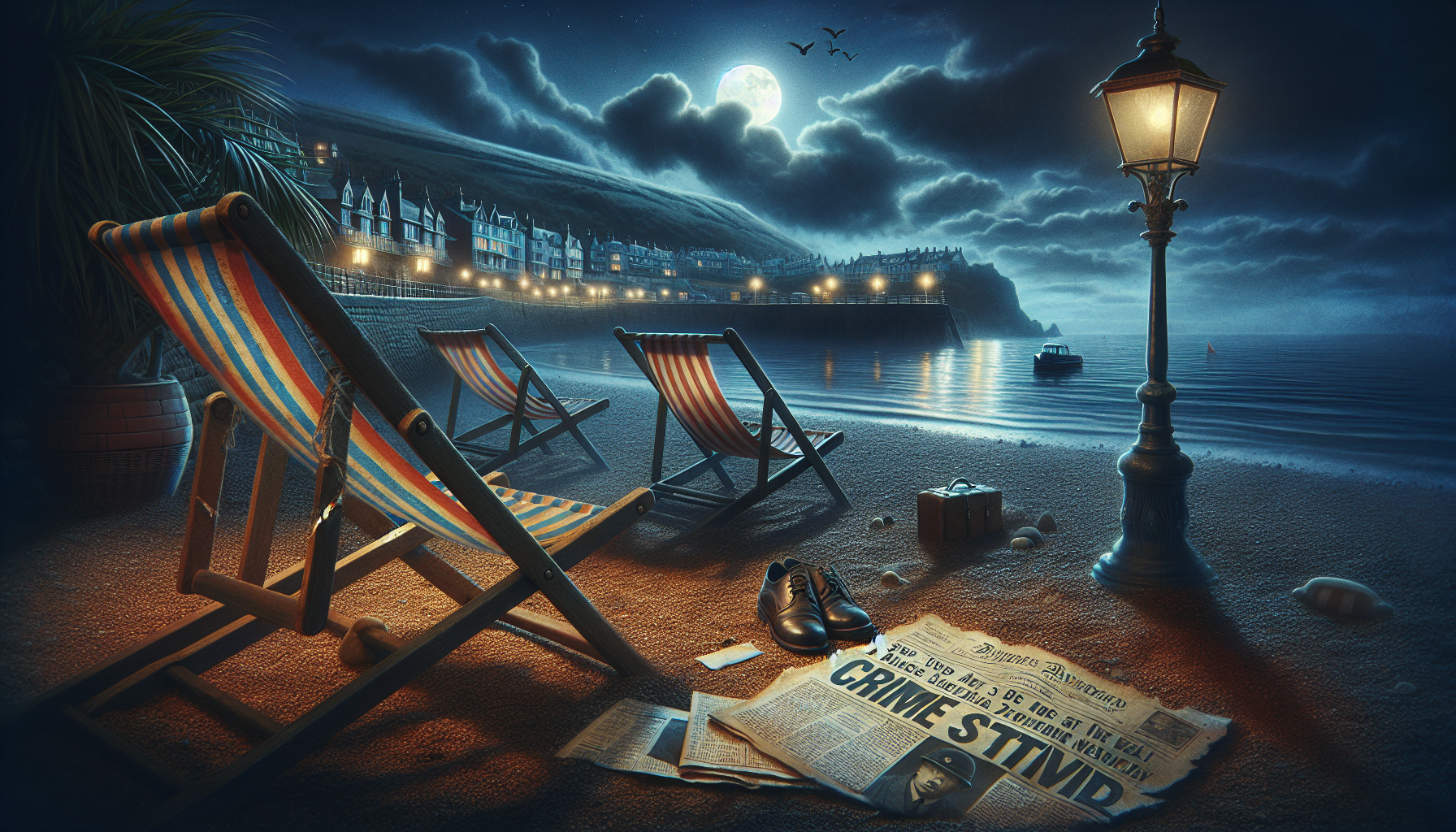Title: Crime in Caravan Country — Skegness, Class A, and the Disappearing Illusion of Leisure
Dear readers,
What happens when the innocence of coastal holidays collides with the grim choreography of organized crime?
Pull on your deck chairs and prepare your English breakfast tea—not for a lazy Sunday morning, but for a real-world crime story set not in some tense urban back alley, but somewhere unexpected: a caravan park near Skegness.
Yes, Skegness. Once a byword for sun-starved family getaways and nostalgic seaside kitsch, it's now the latest backdrop in Britain’s growing saga of crime tourism. This time, the case involves five men from Bradford, a stash of Class A drugs, and a modest caravan that became a cinematic set piece for undercover surveillance.
📺 Scene One: The Caravan as a Crime Den
In footage that plays like an episode of Line of Duty without the budget, we see police officers closing in on a humble trailer tucked amid rows of identical escapes. But instead of barbecued sausages or inflatable unicorns, this one housed cocaine, cash, and a tangled web of supply chains.
Dylan Brandon (24), Shane Brandon (26), Adam Fawcett (23), Kayne Harrison (31), and Jardell Healey-Hunter (27) were each charged with two counts of possession with intent to supply Class A drugs. The setting? A popular holiday resort. The motive? Profit. The result? A shattered illusion of innocence.
🚔 The Case Unfolds—With a Twist of Absence
As the charges piled up, so did the sentences—ranging from three years, seven months to four years, six months. Kayne Harrison was found not guilty and walked free. But perhaps the most cinematic detail? Healey-Hunter failed to show up in court. That's right—jury verdict delivered, sentence pronounced, but the man? Gone. A nationwide manhunt now looms, a warrant pinging through databases as authorities search for an invisible name on a very visible watchlist.
And so, the story’s tempo slows—but the echoes remain.
🧩 Cracks in the Cultural Veneer
This isn’t just a crime story, friends—it’s a parable of substitution. What once substituted luxury with simplicity has now substituted simplicity with risk. The caravan park, a totem of blue-collar respite, has become a hideaway for those attempting to dodge the urban scope of law enforcement.
The irony is dense: These locations are chosen for being “off the radar”—yet they've quietly become prime real estate in the logistics of illicit economies. Think rural meth labs in America. Think the Algarve’s black-market villas. Think anywhere transient enough to forget your name, and permanent enough to build a network.
🎢 Leisure or Laundering? A National Identity Check
Ask yourself: What does it mean when a symbol of community and calm becomes a criminal chessboard? Is crime adapting faster than culture can hold? How far are we, truly, from the days when holiday brochures promised “peace of mind” under candy-striped awnings?
In 2007, a similar drug bust in a Dorset caravan park led to the discovery of multiple passports, burner phones, and a map of delivery drop-offs within 20 miles of nearby primary schools. That case—then dubbed “Crisps and Cocaine”—was dismissed by some as an anomaly. But it clearly wasn't. It was a foreshadow.
🎭 And Behind the Mask of Normalcy…
A deeper question lingers: Why here, and why now?
Skegness is not alone. Rural coastal towns across the UK, often hit hardest by economic downturns and waning tourism, have become fertile ground for operations hiding in plain sight. When systemic neglect meets geographic anonymity, we're left with environments ripe for shadow economies.
And while tabloids might joke, the truth is sobering: Our outposts of leisure have become blind spots in the national security lens.
🧭 The Takeaway—No More Hidden Holidays
So, the next time you're booking your “UK Staycation,” remember: crime stories no longer come dressed in trench coats and city skylines. They wear flip-flops, live in static caravans, and quietly exchange packages near arcade lights.
True safety doesn't come from avoiding certain neighborhoods—it comes from updating what we think normal looks like.
Until next time,
Yours fearlessly in clarity,
A Watcher of Leisure & Loss

